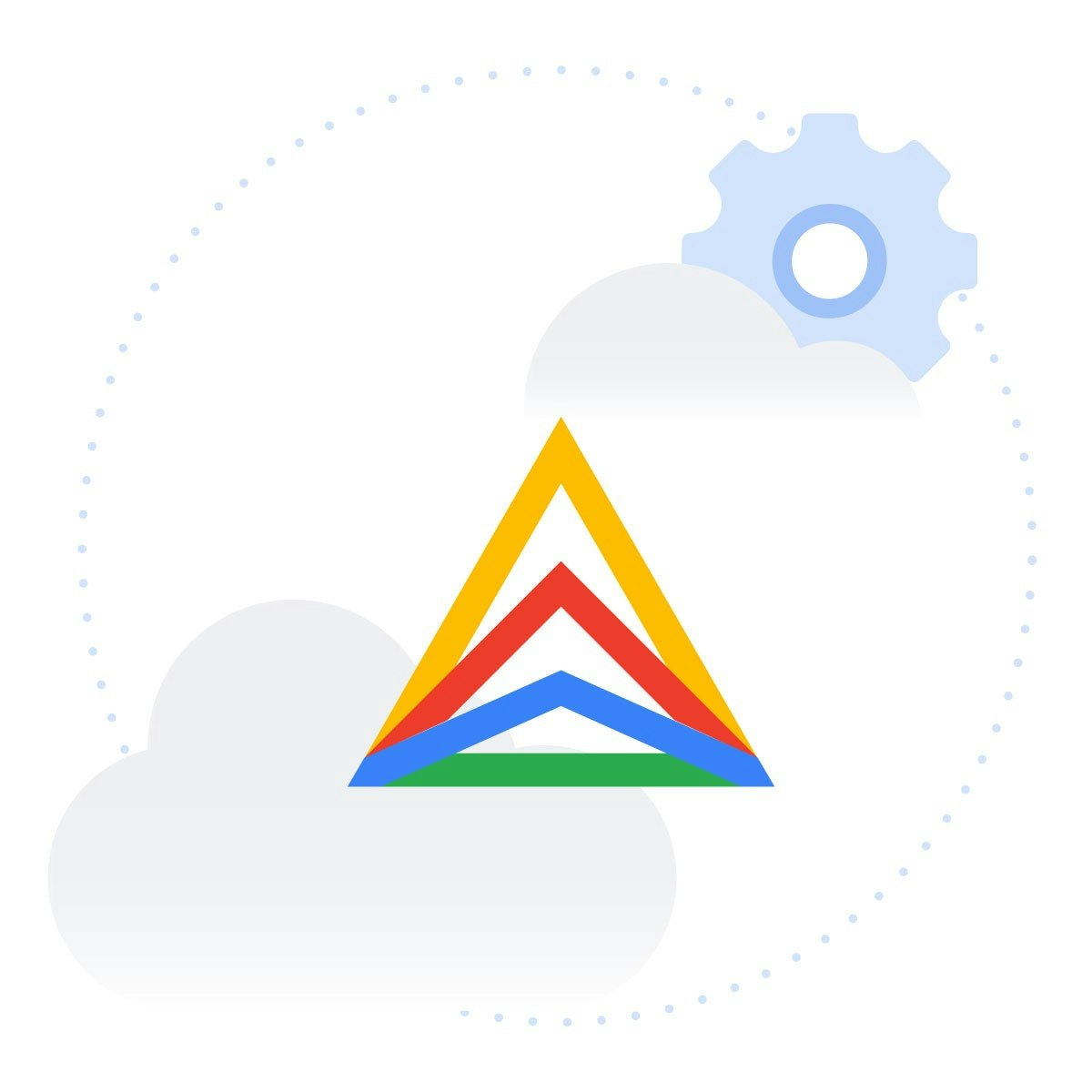Back to Courses









Information Technology Courses - Page 58
Showing results 571-580 of 1471

Securing Applications on Kubernetes Engine - Three Examples
This is a self-paced lab that takes place in the Google Cloud console. In this lab, you will learn how Kubernetes Engine security features can be used to grant varying levels of privilege to applications based on their particular requirements

Check Point: Next-Gen Data Center Security CloudGuard for Google Cloud
This is a self-paced lab that takes place in the Google Cloud console.
In this lab you will learn how to deploy a basic day-to-day scenario with CloudGuard in place

Cloud Operations and Service Mesh with Anthos
This foundational course, course one of the Architecting Hybrid Cloud Infrastructure with Anthos series, equips students to plan and create Anthos environments: to build manageable and reliable multi-cluster Kubernetes infrastructure environments using Anthos and containers. This course is a continuation of Architecting with GKE and assumes direct experience with the technologies covered in that course.

Talend Data Integration Certification Preparation training
Talend Certification exams measure candidates’ skills to ensure that they have the knowledge to successfully implement quality projects. It is recommended to have at least 6 months of experience using Talend products and general knowledge of data integration architecture and advanced features before preparing for a Talend certification.
At the end of this preparation course, you can take the graded assessments in order to obtain the certificate of course completion. This includes practice test questions that provide a sample of question types, format, and content you might encounter during the Talend Data Integration v7 Certified Developer exam. Please note this is not the actual certification.
When you are ready to register for the actual exam, connect to https://www.webassessor.com/talend to register.
Preparing for a certification exam can be both exciting and terrifying, but don't worry! This preparation course will introduce the topics you should invest in when preparing for the certification exam.

Incident Detection and Response
Course 7: Incident Detection and Response
Welcome to course seven, Incident Detection and Response. Having an intruder inside your systems for months unnoticed by your systems, administrators, security specialists, and end-users is tantamount to giving the intruder, the keys to your business or organization. In many cases, organizations discover that they have been subjected to a data breach when they are told by others that their private data has been offered for sale on the dark web. Many leading voices within the security profession state that we all must do better to detect the intruders in our myths. Many people even say that detecting intruders should be the priority for security professionals. Ransomware attacks have become a big business involving not only large scale extortion attacks, but also the sell of ransomware attack tools and services, as well as the exploitation of any data ex-filtrated during the breach. Government officials and industry professionals worldwide have been raising their voices about this new and very troubling variant in the business model of advanced persistent threat or APT attackers. In this chapter, we'll focus on intrusion and incident detection. Many of the tools, techniques, technologies, and ideas, you'll see here have already been examined in previous chapters. This course brings them together and begins by discussing the central theme of detecting the intruder. Model one uses the concepts of precursors and indicators, the signals that give us advanced warning and a genuine alert about a risk event and the indicators of compromise concept which are those signals that we're certain can only mean a hostile agent has gained access. Module two will extend these ideas and concepts around the idea of what to do after you've discovered a possible intrusion, expanding your understanding of incident response. Module three continues with a deeper look at supporting forensic investigations. Forensics is an evidence-based process of logically and dispassionately reasoning about a situation or an event. It's your inner child, looking at something and asking questions. Then following each of those questions with more questions, letting the facts that you find frame and shape your growing understanding of what happened, how why and where, who did it and what impacts it may have. With these questions answered you can circle back to reviewing risk mitigation controls to see which if any, need to be modified, replaced or augmented.
Course 7 Learning Objectives
After completing this course, the participant will be able to:
L7.1 - Review the steps for monitoring, incident detection and data loss prevention using all-source intelligence.
L7.2 - Identify the elements of an incident response policy and members of the incident response team (IRT).
L7.3 - Classify the security professional’s role in supporting forensic investigations.
Course Agenda
Module 1: Operate All-source Intelligence for Monitoring and Incident Detection (Domain 3 - Risk Identification, Monitoring, and Analysis)
Module 2: Support Incident Lifecycle (Domain 4 - Incident Response and Recovery)
Module 3: Understand and Support Forensic Investigations (Domain 4 - Incident Response and Recovery)
Who Should Take This Course: Beginners
Experience Required: No prior experience required

MongoDB Atlas with Natural Language API and Cloud Run
This is a self-paced lab that takes place in the Google Cloud console. In this lab you will authenticate to App services, query Atlas data with GraphQL, deploy an Angular application to Google Cloud Run and integrate the Google Cloud Natural Langauge API.

Configure and Manage Azure Key Vault
In this 1 hour long project-based course, you will learn to configure and manage Azure Key Vault along with the sensitive data stored inside. First, we will learn to create an Azure Key Vault within the Azure portal. Then we will learn to create keys, secrets, and certificates on the Azure Key Vault using PowerShell and the Azure portal. We will also assign a Key Vault contributor role to an existing user. You will also discover how to configure access policies in order to grant permissions to the Key Vault objects and store the connection strings of the storage account and Azure SQL database to secrets in Azure Key Vault. Finally, we’ll explore how to use Azure Key Vault in the Azure data factory.
You must have an active Azure account.
Basic knowledge of working with Azure is recommended.

Service Accounts and Roles: Fundamentals
This is a self-paced lab that takes place in the Google Cloud console.
In this hands-on lab, you will learn how to create and manage Service Accounts

Flutter Web and Firebase Authentication
This is a self-paced lab that takes place in the Google Cloud console.
This lab demonstrates how to use Firebase Web authentication in a Flutter application.

Prepare for DP-203: Data Engineering on Microsoft Azure Exam
Microsoft certifications give you a professional advantage by providing globally recognized and industry-endorsed evidence of mastering skills in digital and cloud businesses. In this course, you will prepare to take the DP-203 Microsoft Azure Data Fundamentals certification exam.
You will refresh your knowledge of how to use various Azure data services and languages to store and produce cleansed and enhanced datasets for analysis. You will test your knowledge in a practice exam mapped to all the main topics covered in the DP-203 exam, ensuring you’re well prepared for certification success.
You will also get a more detailed overview of the Microsoft certification program and where you can go next in your career. You’ll also get tips and tricks, testing strategies, useful resources, and information on how to sign up for the DP-203 proctored exam. By the end of this course, you will be ready to sign-up for and take the DP-203 exam.
This is the last course in a program of 10 courses to help prepare you to take the exam so that you can have expertise in designing and implementing data solutions that use Microsoft Azure data services. The Data Engineering on Microsoft Azure exam is an opportunity to prove knowledge expertise in integrating, transforming, and consolidating data from various structured and unstructured data systems into structures that are suitable for building analytics solutions that use Microsoft Azure data services. Each course teaches you the concepts and skills that are measured by the exam.
By the end of this Specialization, you will be ready to take and sign-up for the Exam DP-203: Data Engineering on Microsoft Azure (beta).
Popular Internships and Jobs by Categories
Browse
© 2024 BoostGrad | All rights reserved


